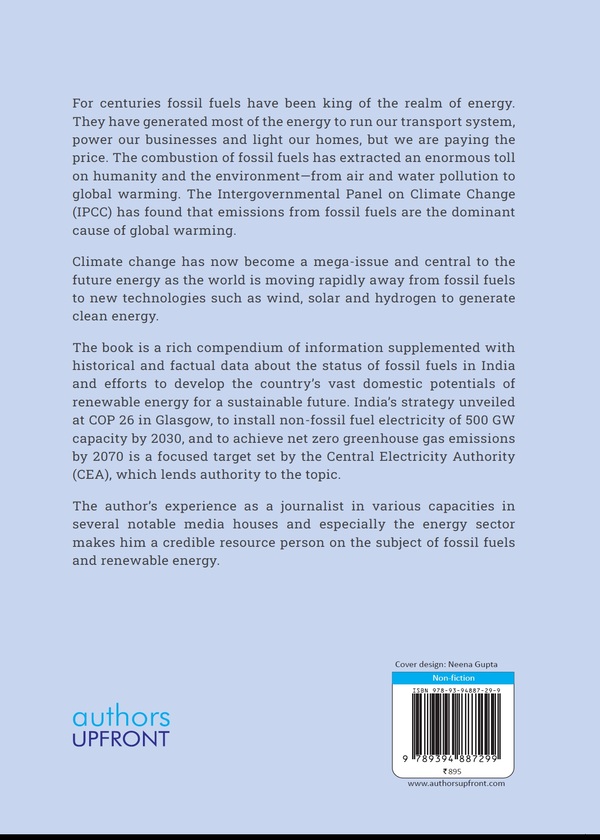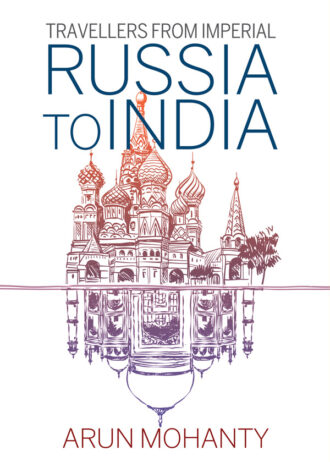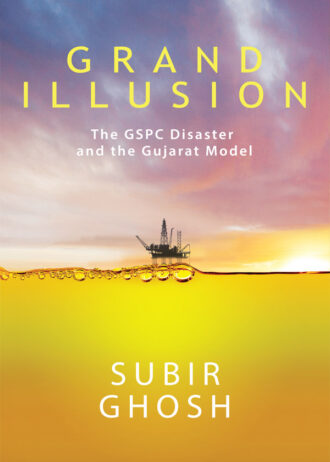For centuries fossil fuels have been king of the realm of energy. They have generated most of the energy to run our transport system, power our businesses and light our homes, but we are paying the price. The combustion of fossil fuels has extracted an enormous toll on humanity and the environment—from air and water pollution to global warming. The Intergovernmental Panel on Climate Change (IPCC) has found that emissions from fossil fuels are the dominant cause of global warming.
Climate change has now become a mega-issue and central to the future energy as the world is moving rapidly away from fossil fuels to new technologies such as wind, solar and hydrogen to generate clean energy
The book is a rich compendium of information supplemented with historical and factual data about the status of fossil fuels in India and efforts to develop the country’s vast domestic potentials of renewable energy for a sustainable future. India’s strategy unveiled at COP 26 in Glasgow, to install non-fossil fuel electricity of 500 GW capacity by 2030, and to achieve net zero greenhouse gas emissions by 2070 is a focused target set by the Central Electricity Authority (CEA), which lends authority to the topic.
The author’s experience as a journalist in various capacities in several notable media houses and especially the energy sector makes him a credible resource person on the subject of fossil fuels and renewable energy.








